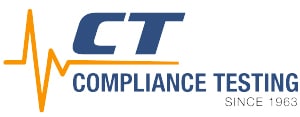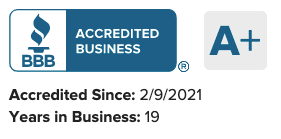Get Free Help From Our Engineers With FCC Certification
Need help achieving FCC certification? We work with businesses and individuals across the country, including in , to achieve FCC certification for electronic devices.
Click the “Talk to Our Team” button or call us on 866-540-5287 to ask our engineers your question about FCC certification, or request a free quote for testing and achieving FCC certification for your device.

Request a Free Quote From Our Team
Please enter your name, contact information, and any information about your device and the type of testing you need into the form below. Our team of engineers and compliance specialists will contact you as soon as possible with a free quote for your project.

FCC Part 15.247 is a specific section within the FCC Part 15 rules that deals with the operation of intentional radiators — electronic devices that deliberately use radio frequencies to connect to other devices.
As a section of Part 15, Part 15.247 is designed to prevent devices that intentionally emit radio frequency from interfering with other radio services.
More specifically, Part 15.247 regulates electronic devices that use spread spectrum and digital modulation techniques within certain frequency bands, such as 920-928 MHz, 2400-2483 MHz, and 5725-5850 MHz.
Devices affected by Part 15.247 include Wi-Fi and Bluetooth devices, medical equipment, some cordless phones, and certain RF remote controls.
If your device is affected by Part 15.247, it’s important to ensure you’re fully compliant with this regulation before bringing your product to market.
As specialists in FCC testing and compliance, we can answer any of your questions about FCC Part 15.247. You can contact us online, call us at 866-540-5287 to ask our engineers a question, or read below to continue learning about what Part 15.247 is and how it may affect your device.
What is FCC Part 15.247?
Every electronic device that is sold or manufactured in the US must be officially approved by the Federal Communications Commission (FCC).
If you’re planning on selling your own product, you’ll need to make sure that it complies with any relevant regulations and guidelines released by the FCC.
Part 15.247 of the FCC’s official guidelines covers intentional radiators — electronic devices that are designed specifically to emit radio frequency (RF). More specifically, it addresses the use of spread spectrum systems and digital modulation techniques within specific frequency bands.
These techniques involve spreading a transmitted signal over a wide frequency range to reduce the risk of interference with other devices.
According to the FCC, equipment that’s approved under Part 15.247 can operate as a Digital Transmission System (DTS), Frequency Hopping Spread Spectrum (FHSS) system or hybrid system.
The FCC permits the use of three different ISM bands intended for unlicensed communication equipment purposes. These three ISM bands are 902 to 928 MHz, 2.400 to 2.4835 GHz and 5.725 to 5.875 GHz.
Bluetooth/WLAN 802.11 b/g/n devices are included in this list of ISM bands, as their frequency is estimated to be 2.4 GHz.
List of FCC 15.247 Devices
A wide range of electrical devices are subject to FCC Part 15.247 regulations. Devices that fall under this regulation include:
- Wi-Fi devices, including wireless routers, access points, and adapters that operate in the 2.4 GHz and 5.8 GHz bands.
- Bluetooth devices, such as headphones, speakers, computer peripherals, smartwatches, and other products that use 2.4 GHz Bluetooth technology.
- Industrial, scientific and medical equipment, including devices that operate using the ISM radio bands.
- Home automation systems, such as wireless thermostats, lighting equipment and control systems for security devices.
- Wireless controls, transmitters and receivers, including equipment used to control home and commercial camera systems, drones and other equipment.
- Cordless phones, RFID readers, RF remote controls, and other equipment that uses the frequency bands regulated under FCC Part 15.247.
Why Do You Need Testing for FCC Part 15.247 for Bluetooth/WLAN 802.11 b/g/n (2.4 GHz)?
Part 15.247 of the FCC’s guidelines requires rigorous testing of your Bluetooth/WLAN device to ensure it’s able to function normally without disrupting other products.
A critical part of the process of achieving compliance with Part 15.247 is testing your device to ensure it meets the FCC’s standards. Testing is important for several reasons:
- First, FCC testing ensures that your electronic device adheres to the FCC’s standards. If your device passes lab testing, this means that it does not exceed the RF limits imposed by the FCC.
As a result, your electronic product is considered safe for consumers to use and can be sold legally within the United States. - Second, complying with the FCC’s regulations protects you from fines, legal restrictions on the marketing of your device, and other legal penalties that the FCC may impose on manufacturers who fail to comply with regulations.
The FCC takes its verification and enforcement procedures seriously, and it will penalize you if you fail to adhere to them. The best way to avoid unwanted, unwelcome surprises is to ensure your product is rigorously tested by an accredited testing lab.
Get Expert Help to Achieve FCC Part 15.247 Approval
Complying with FCC Part 15.247 can be a significant challenge, especially if you’re bringing a product to market for the first time. Having a reliable, trusted partner by your side can help you to achieve compliance with FCC regulations and launch your device successfully.
As specialists in FCC compliance, we’ve helped hundreds of device manufacturers successfully comply with Part 15.247 and other FCC regulations.
Contact us online or call us at 866-540-5287 to request a quote for your device, ask our engineers a question, or learn more about the FCC testing, certification and approval process.



